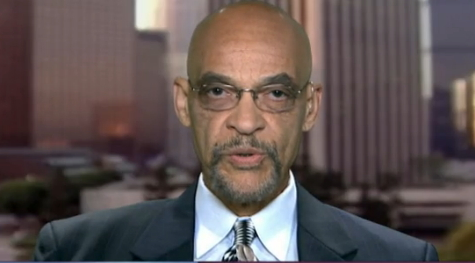Earl Ofari Hutchinson
Federal prosecutors in New York brand Trump, “Individual-1”. They say he made illegal hush money payments and had illegal dealings with Russian operatives during the 2016 presidential campaign through his indicted attorney Michael Cohen. Trump quickly tweeted “Totally clears the President. Thank You.” It doesn’t. In a client-attorney contract and relationship, attorneys are strictly prohibited from taking any action on their client’s behalf without their permission, agreement and direction. Yet, Trump’s legal mouthpiece so far is the one who has taken the fall for Trump’s crimes.
The question is how to haul “Individual-1” into a court dock. It’s the same question that nags Special counsel Robert Mueller. In May 2017, he looked hard at documents on Trump’s firing of former FBI Director James Comey. This touched off endless chatter that Mueller was zeroing in on trying to make a case against Trump for obstruction of justice. That would be a potentially impeachable offense. But it was going to be a tough sell. The federal statute that governs what is and isn’t an obstruction of justice offense is straightforward. It ticks off the actions required, “threats,” “corrupts,” “impedes,” or “influences,” any action that comes under the explicit proper purview of a government department or Congress. There’s more. It would have to be shown that the person made a false statement, withheld, concealed, altered, or destroyed a document that obstructed the investigation.
The problem in trying to make an obstruction of justice charge stick against Trump is the always thorny matter of trying to prove intent. So, even if Trump desperately wanted Comey to back off from any potential investigation of his Russia tie and did try to undermine such an investigation, a prosecutor would still have to prove that he deliberately and willfully used illegal means to stop Comey from an investigation. If it ever came to that, Trump would have one more legal card to play courtesy of the Supreme Court. In its 1974 decision on Nixon and Watergate documents, the court ruled that a president can legally claim executive privilege to skip out of turning over any documents to Congress or any other branch of government. Though when and under what circumstances executive privilege can be evoked is narrow, it does cover documents that a president claims are confidential and sensitive and in some way concerns matters of national security.
If a president claimed it, it would ignite a battle royal with Congress. This would trigger a firestorm of negative public opinion and the inevitable media feeding frenzy. Luckily for Trump, there was nothing that came close to that during the early months of the Mueller investigation. There was no known incriminating document to hide away from the special prosecutor initially found. However, that could change.
The other possible charge bandied about now that Cohen has been implicated in Trump’s Russian and campaign dealings is whether his entangled business dealings with the Russians rise to the level of blatant favoritism. Mueller took a lot of interest in Trump’s deals in Russia before he became a presidential candidate. They involved bank loans, a beauty pageant, and the much-scrutinized hotel deal in Russia. The obvious intent was to determine what, if any, hold the Russians may have had on him.
The problem with digging in this area is that, apart from Mueller, the election tampering angle involving Trump will require a deep ferret by congressional investigators to find the solid proof that Trump directed Putin and his cronies to cook the election books for him.
Democrats on the House Intelligence Committee repeatedly charged that the obstructionism of GOP committee members was at its glaring worst when Trump Jr. and Stephen Bannon testified in closed door sessions. They both flatly refused to answer tough questions from Democrats on the committee about their role in meetings with Russians. They evoked executive privilege to justify their silence. The committee had the power to issue subpoenas to both and compel them to testify under oath about what they knew. It declined then to go any further. Now with the Democrats in control of that committee, and the Cohen revelations, that could change.
Throughout the slew of indictments of Trump officials and plea deals by them on various charges, through the early months of the Mueller investigation there was nothing that emerged even remotely close to hang an obstruction or collusion charge on Trump. This wouldn’t stop the endless talk, speculation and hope that Trump could be tripped up enough to bring a strong case for his removal.
Mueller and federal prosecutors have a slew of witnesses and principals involved with Trump to talk to who might have something incriminating. However, to make an obstruction or collusion case it still will take strong evidence of wrongdoing that meets the high Constitutional bar to oust a president, let alone bring an actual criminal indictment. Federal prosecutors, though, with Cohen, took a big step toward making that happen against “individual-1.”
Earl Ofari Hutchinson is an author and political analyst. He is the author of The Russia Probe (Middle Passage Press). He is a weekly co-host of the Al Sharpton Show on Radio One. He is the host of the weekly Hutchinson Report on KPFK 90.7 FM Los Angeles and the Pacifica Network.

